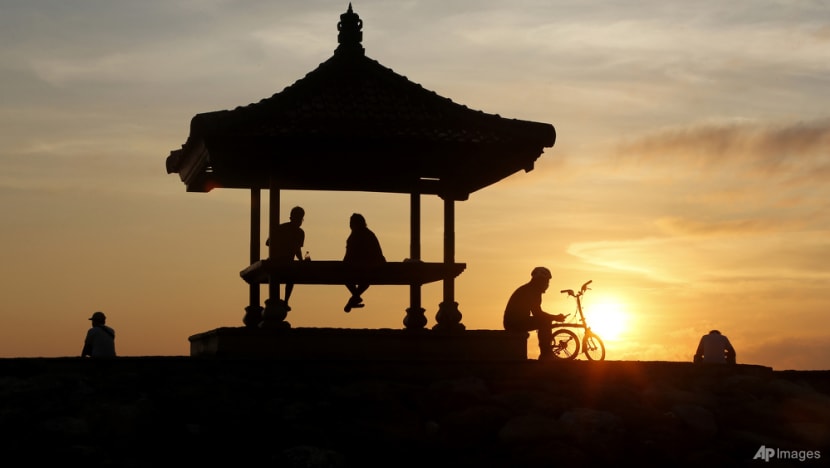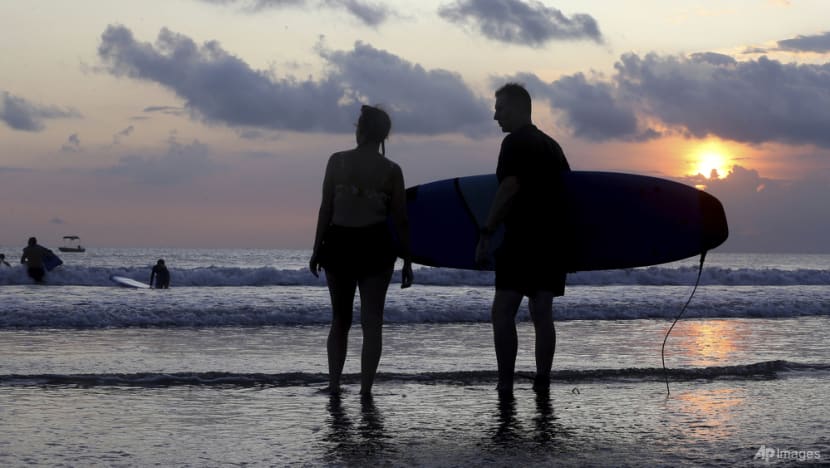More Australian tourists expected in Bali after COVID-19 testing rules lifted
Australians made up the bulk of tourists in Bali before the pandemic. With the winter holidays coming up, tourism operators hope they will return in droves again.

JAKARTA: It has been a hectic two months for Janet De Neefe, an Australian business owner who has been living in Bali for more than three decades.
Mdm De Neefe said she had been busy getting her restaurants and hotel back in tip top condition and rehiring staffers who were laid off because of the COVID-19 pandemic.
Business, she said, is starting to pick up after Indonesia decided to allow international tourists to enter the country in February followed by a decision a month later to lift the quarantine requirement for those who are fully vaccinated.
However, not all of her regular customers have been coming back to Bali, she said.
“The testing requirement (to enter Indonesia) is just too much of a hassle for a lot of Australians. My friends in Australia, even the seasoned travelers, preferred to wait. While it is not that difficult (to have themselves tested), I think for some people, they can’t be bothered to do it,” she told CNA.
Mdm Colleen Yates, an Australian who runs a yoga studio in Bali also shared a similar perspective.
She told CNA that she was running online classes during the pandemic. When Bali was reopened, she decided to offer yoga retreats. “But some people are put off by the fact that they had to take (COVID-19) tests before they can enter Indonesia,” she said.
Both Mdm De Neefe and Mdm Yates are sanguine that the situation will improve soon.
On Tuesday (May 17), President Joko Widodo announced that the requirement for vaccinated travellers to take COVID-19 tests before entering Indonesia will be lifted.
Starting Wednesday, travellers no longer need to take a pre-departure COVID-19 test. Only unvaccinated and partially vaccinated travellers are required to take an on-arrival polymerase chain reaction (PCR) test and undergo quarantine for five days.
Those who show symptoms of a coronavirus infection will also be required to take an on-arrival test, regardless of their vaccination status.
INFLUX OF AUSTRALIAN TOURISTS EXPECTED
The announcement seems to be just in time, because the Australian winter holidays will begin next month.
Around 1.4 million Australians visited Bali each year before the pandemic, the biggest group among foreign tourists. Australians also made up the majority of the 17,000 foreign tourists arriving in Bali in March, a month after the island reopened to international travellers.
Given the demand, several airlines are again operating direct flights from Australian cities to the resort island. The latest was AirAsia which resumed its Perth to Bali flight route on Sunday.

Mr Tjokorda Bagus Pemayun, chief of the Bali Tourism Agency said the decision by Jakarta to ease the testing regime will make Bali an attractive destination for Australian tourists. Without the easing of the restriction, Australians would have opted to travel to other places like Thailand and Cambodia, he said.
“This decision came just in time for the holiday season. It will make Bali an attractive destination for tourists who would otherwise go to other countries which had already implemented a similar relaxation,” Mr Pemayun told CNA.
“We expect the number (of tourists) to increase even further for the May and June period onwards, now that the testing regime has been eased.”
Around 80 per cent of Bali’s economy relies directly or indirectly on tourism. The drastic drop in the number of tourists has cost the jobs of at least 75,000 workers who had been either laid off or forced to take unpaid leave, according to Bali’s manpower agency.
Mr Pemayun said he is confident that the relaxation will not result in a spike in the COVID-19 caseload. “The majority of people in Bali are already fully vaccinated and the relaxation only applies to foreigners who have been fully vaccinated. I am confident that Bali’s efforts to curb the spread of COVID-19 will not falter,” he said.
Mr I Gusti Ngurah Rai Suryawijaya, deputy chairman of the Bali chapter of the Indonesian Hotel and Restaurant Association also that said industry players are welcoming the latest announcement.
“The policy will definitely provide a positive impact on the tourism industry in Bali. I am convinced that we will see an influx of tourists coming to Bali, particularly Australians, who already think of Bali as their second home,” he told CNA.
Indonesia has recorded more than 6 million COVID-19 infections since the pandemic began, killing at least 156,000 people.
In Bali, a total of 157,000 had been infected by the coronavirus. The number of daily infection currently stands at around 20, far lower than during the height of the second wave in February when the island recorded more than 1,000 new COVID-19 cases per day.












